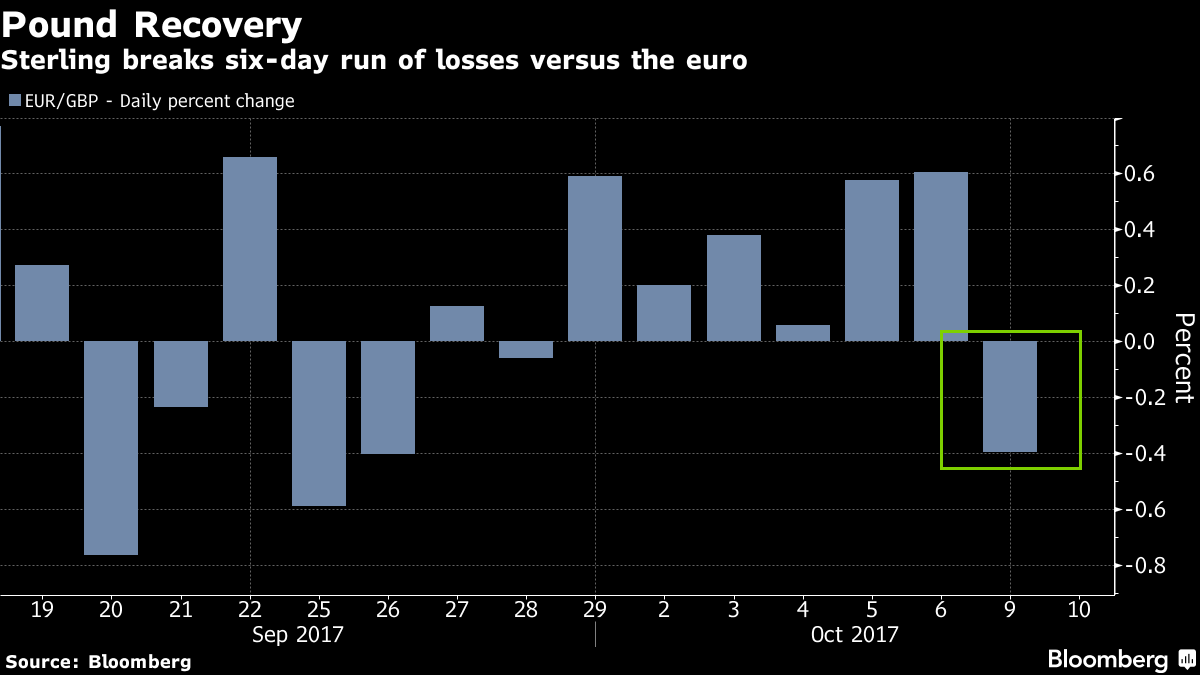Investing.com’s stocks of the week
(Bloomberg) -- The pound strengthened for the first time in seven days versus the euro as U.K. employment data signaled that the Bank of England might have to tighten policy at a faster pace than previously thought.
Sterling snapped two days of losses against the dollar and climbed against all of its major peers as the Office of National Statistics corrected second-quarter unit labor costs to 2.4 percent year-on-year, up from the 1.6 percent it announced on Friday. The currency was also helped by talk that Prime Minister Theresa May could demote her rebellious Foreign Secretary Boris Johnson to thwart attempts to oust her.
The jump in sterling on the ONS news was likely a “knee-jerk response” said Stuart Bennett, head of Group-of-10 currency strategy at Banco Santander (MC:SAN) SA. While a November BOE rate hike is already priced in by markets, the news was “probably enough to convince U.K.-based traders to buy.” May’s survival as PM also helped the pound “as FX markets loathe political uncertainty over almost everything else,” Bennett said.
The pound gained 0.4 percent to 89.47 pence per euro as of 9:12 a.m. in London, having fallen around 2.4 percent in the past six days. Sterling also rose 0.4 percent to $1.3112, recovering from a drop on Friday to a one-month low. The yield on 10-year U.K. government bonds was little changed at 1.36 percent.
Pound Volatility
Volatility in sterling showed the BOE is increasingly in traders’ focus amid Brexit uncertainty. The implied probability of a 25-basis-point rate hike by the BOE in its November meeting was 85 percent, according to MPC-dated SONIA.
“Given that the markets are anticipating a rate hike already, it remains to be seen whether this could be a game changer for sterling,” said Valentin Marinov, head of Group-of-10 currency research at Credit Agricole (PA:CAGR) SA’s corporate and investment-banking unit in London, referring to the ONS error. “Our expectation is that sterling will remain close to recent lows against the dollar and the euro and recover on a more sustained basis only over the long-term.”
